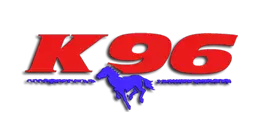
MSU Extension Revises MontGuide About Montana Medical Care Savings Accounts
BOZEMAN — Montana State University Extension wants to remind Montanans to open a Montana Medical Care Savings Account or make deposits into their account before Dec. 31 to save money on income taxes.
An MSA is an account used to reduce the cost of saving for medical expenses and long-term health care. According to Marsha Goetting, MSU Extension family economics specialist, an MSA offers several benefits, including a reduction on state income taxes.
For example, if a person has taxable income over $19,800, they could save approximately $304 in state income taxes by opening an MSA and depositing up to $4,500 for the tax year 2022. The MSA earns interest free from Montana income taxation, and the balance at the end of the year rolls over for future use.
Goetting added that an MSA can also be passed to others after death. By placing a payable-on-death, or POD, designation on the account, individuals can leave a legacy for spouses, children or grandchildren to use for their own medical expenses. There are also no inheritance taxes on MSAs, and, as long as an individual’s estate is valued at less than $12.06 million in 2022, there is no federal estate tax either.
“Without a POD beneficiary, the money passes to your heirs according to your written will,” Goetting said. “If you do not have a written will, the MSA passes by Montana law to your heirs with priority given to a spouse. Either way, a legacy is provided. If you do not have beneficiaries, you could name your favorite nonprofit as the POD beneficiary.”
Although the maximum amount used to reduce a Montanan’s taxable income annually is $4,500, Goetting said a person can also put less than that in an MSA. The amount used to reduce income tax for Montana residents is the total deposit in the MSA during the tax year, not the amount withdrawn for eligible medical care expenses between January and December.
Eligible expenses include medical insurance premiums; prescription drugs; medical, dental and nursing home care; eyeglasses; crutches; and transportation for medical care.
“Montana considers eligible medical care expenses as any items the IRS accepts,” Goetting said. IRS publication 502 provides a detailed list of eligible expenses.
All resident taxpayers are eligible to set up an MSA at a local financial institution, even if they have another health care plan provided by their employer, a Section 125 Flexible Spending Account or a Federal Health Savings Account. A taxpayer does not have to be in a high deductible health insurance plan to be eligible for the MSA. And individuals who are 65 and older can still have an MSA but not the HSA.
“Montana Medical Care Savings Accounts (MSAs) for the 2022 Tax Year” is available online HERE. Paper copies are available from county or reservation Extension offices.
- by MSU News Service -

